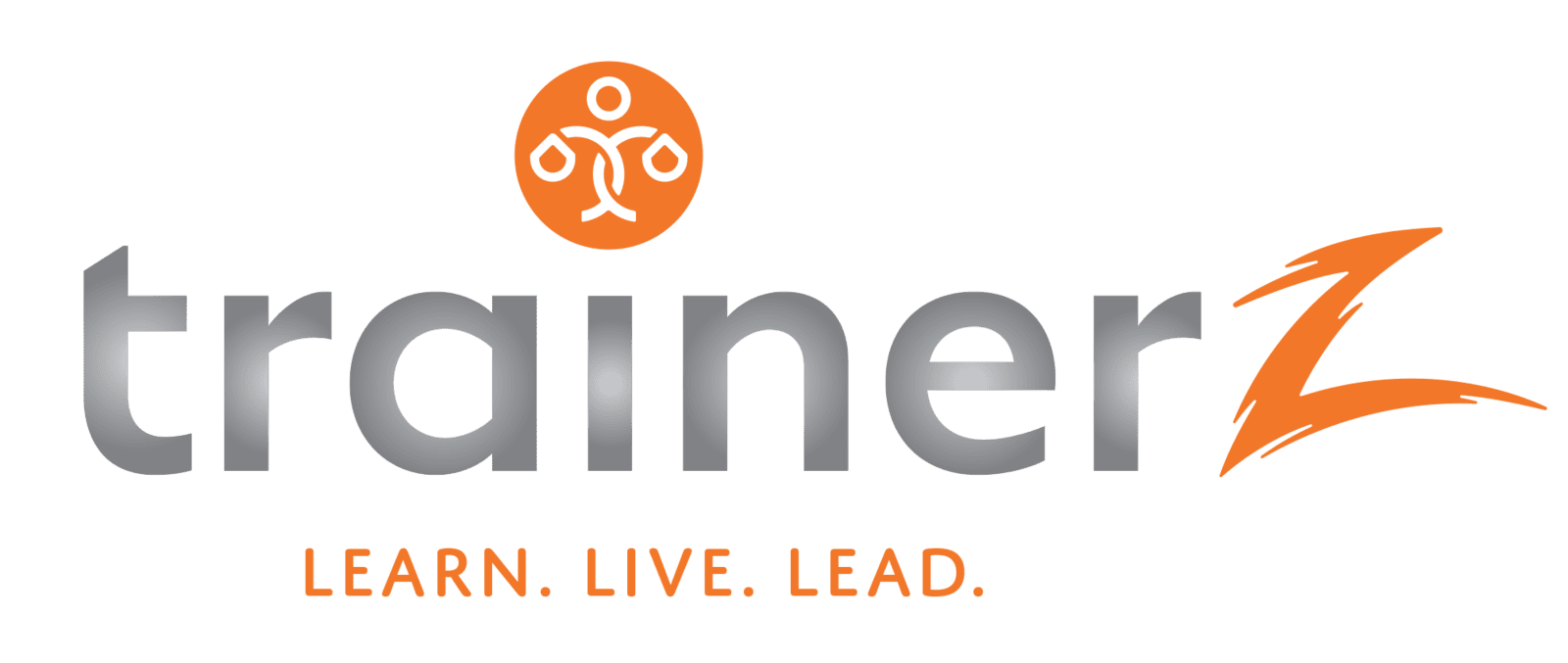From Informal Labour to Entrepreneurial Empowerment
From Informal Labour to Entrepreneurial Empowerment
The Labourpreneur Micro SMME Business Model represents the cornerstone of the informal economy. It is a model where self-employed individuals—often engaged in semi-skilled or unskilled work—sell their labour for a specific period at a set rate.
Unlike businesses that deal in products or ancillary services, this model is solely focused on providing personal services such as domestic work, gardening, child minding, pet sitting, handyman services, construction labour, farm labour, street cleaning, and more.
These entrepreneurs typically operate informally, relying on cash-based transactions and minimal technology (though smartphones are sometimes used for communication or scheduling).
This business model is synonymous with labourpreneur business ideas and is a prime example of micro SMME labour business models within the informal sector. In many urban and rural settings, these individuals form the backbone of local economies by offering low-tech, labour-intensive services without the overhead of fixed infrastructure.
Defining The Labourpreneur Micro SMME Business Model
Defining The Labourpreneur Micro SMME Business Model
At its core, the Labourpreneur Micro SMME Business Model is about selling one’s labour on a micro-scale. Unlike formal employment, where individuals work for an employer under a structured arrangement, this model allows labourers to be self-employed, setting their own hours and rates.
Often, these services are provided on a day-to-day or task-by-task basis, and they are largely characterized by their cash-based micro business operations.
Examples include House movers or Packers, Window Cleaners, Car Washers, Delivery Helpers, Event Setup Labourers, Seasonal Decorators, House Sitters and Office Cleaners.
The model is characterized by its flexibility, low barriers to entry, and reliance on personal effort.
It emphasizes the provision of a specific service, often requiring physical labour or specialized skills, rather than the sale of tangible goods. These individuals typically operate independently, often as sole proprietors, with minimal overhead and a high degree of autonomy.
Key characteristics include:
Direct Service Provision– Focus on providing a specific service directly to clients, such as cleaning, gardening, childcare, construction, or personal care.
Independent Operation– Individuals are typically self-employed and operate independently, without the structure of a formal company or employer-employee relationship.
Project-Based or Contractual Work– Often involves short-term projects or contracts, with income varying depending on the number and size of projects undertaken.
Cash-Based Transactions– Primarily relies on cash-based transactions, although digital payment options may be emerging.
Minimal Overhead– Typically involves minimal overhead costs, as many labourers work with their own tools and equipment.
It is a vital source of livelihood for many, particularly in urban and rural areas where formal employment opportunities are scarce.
However, it also faces challenges such as lack of legal protection, income instability, and limited growth potential.
These activities fall under informal labour business models and are a vital part of the informal economy, providing employment, income, and essential services to local communities.

The Key Skills Required to succeed as an Labourpreneur Micro SMME
The Key Skills Required to succeed as an Labourpreneur Micro SMME
To excel as a labourpreneur, one must possess a blend of practical, technical, and business skills.
Key competencies include:
Technical Proficiency – Mastery of the specific service—whether it’s horticulture for gardeners, basic construction skills for labourers, or childcare techniques for child minders, strong skills and expertise in the specific trade or service being offered is critical to succeed, for example:
Domestic Work – Cleaning techniques, cooking skills, childcare experience.
Gardening– Knowledge of plant care, landscaping techniques, and use of gardening tools.
Work Ethic – Strong work ethic, reliability, punctuality, and a commitment to providing high-quality service.
Physical Stamina– For physically demanding jobs (e.g., construction, gardening), physical stamina and endurance are essential.
Understanding of Local Language– Proficiency in the most popular language spoken in the service area is crucial for effective communication with clients and building relationships.
Communication Skills– The ability to interact effectively with clients, to build trust and rapport.
Time Management and Organization Skills – Ability to manage time effectively, meet deadlines, and prioritize tasks, especially when juggling multiple clients or projects.
Problem-Solving – Addressing unexpected challenges, such as equipment failure or client complaints.
Basic Financial Literacy– Understanding how to manage cash-based transactions, managing cash flow, tracking expenses, setting competitive yet profitable pricing, and keeping accurate records is critical. This is part of learning how to manage a labour service business.
Negotiation and Sales– Knowing how to secure repeat business, and negotiate rates is fundamental.
Basic Marketing– Even informal labourpreneurs benefit from simple marketing tips for labour services, such as using word-of-mouth and local advertising.
Customer Service Skills- Excellent interpersonal and communication skills to interact with clients, build rapport, and understand their needs. This includes active listening, clear communication, and the ability to build trust.
The Key Behavioural Traits required to succeed as a Labourpreneur Micro SMME
The Key Behavioural Traits required to succeed as a Labourpreneur Micro SMME
Beyond skills, personal characteristics play a pivotal role in success. Becoming a successful Labourpreneur also depends on specific behavioral traits:
Self-Discipline and Motivation– The ability to take initiative and work independently without direct supervision, manage time effectively, and stay motivated. This includes the ability to find new clients, manage finances, and overcome challenges.
Reliability and Punctuality – Clients depend on quality work being delivered timeously. Consistency builds trust and reputation.
Resilience– Persevering through physical demands and economic uncertainties. Facing challenges such as competition, legal uncertainties, and economic fluctuations requires a robust, positive mindset.
Adaptability– The informal sector is dynamic. The ability to adjust to varying work conditions, customer demands, and unforeseen challenges, such as weather changes or unexpected scheduling conflicts, are essential.
Proactiveness – Taking initiative to find new clients, expand services, and improve skills. This may involve networking, marketing efforts, and seeking opportunities for professional development.
Patience:
Patience and Understanding– Building a client base and earning trust takes time. Maintaining patience and understanding when dealing with challenging clients or unexpected situations is essential.
Hard Work and Perseverance– The nature of manual labour often demands long hours and physical effort. A strong work ethic is non-negotiable.
Professionalism:
Even without a formal structure, maintaining a professional demeanor, including punctuality, appropriate attire, and a courteous and respectful attitude towards clients, is crucial for repeat business.
Honesty and Integrity– Building trust with clients through reliable service, ethical business practices, and transparent pricing goes a long way in building a solid client base.
These traits enable labourpreneurs to overcome the challenges of informal labour businesses and serve as the foundation for transitioning into more formal SME structures later on.

The Key Role(s) and Responsibilities of a Labourpreneur Micro SMME
The Key Role(s) and Responsibilities of a Labourpreneur Micro SMME
As a sole proprietor in the informal sector, an individual labourer must take on multiple responsibilities.
Individual labourers wear many hats, such as:
Service Delivery– This is the core function. Whether it's cleaning, gardening, or babysitting, the quality of service is paramount.
Providing high-quality services to clients, meeting their specific needs and expectations may involve:
Performing tasks efficiently and effectively.
Using appropriate tools and equipment safely and responsibly.
Ensuring client satisfaction through excellent service delivery.
Client Relationship Management – Communicating with clients, understanding their needs, establishing trust, handling complaints, and ensuring customer satisfaction through direct face-to-face interaction.
Client Acquisition – Finding and acquiring new clients through networking, referrals, and other marketing efforts may include:
Building relationships with potential clients within the community.
Utilizing local networks and social connections to find new opportunities.
Engaging in basic marketing activities, such as distributing flyers or posting on local community boards.
Customer Service – Building and maintaining strong client relationships through excellent communication and customer service, includes:
Actively listening to client needs and preferences.
Addressing client concerns and resolving issues promptly.
Building long-term relationships with regular clients.
Basic Marketing – Promoting services through word-of-mouth, flyers, and, where possible, social media platforms.
Financial Management – Tracking income and expenses, managing daily transactions and cash flow, and invoicing clients, may involve:
Setting competitive, yet profitable rates for services.
Keeping accurate records of income and expenses.
Collecting payments from clients promptly.
Managing cash flow effectively to ensure timely payment of expenses. Setting aside earnings for reinvestment.
Scheduling and Logistics – Coordinating work hours, appointments, and travel between job sites.
Professional Development – Continuously improving skills and knowledge through training, workshops, and other professional development opportunities.
This may include:
Attending workshops or training courses to enhance skills and learn new techniques.
Seeking feedback from clients to identify areas for improvement. Staying updated on industry best practices and safety regulations.
Compliance and Safety – Adhering to local informal trading guidelines (even if not strictly regulated) to minimize conflicts with local authorities.
These responsibilities highlight the essence of a self-employed service provider business model within the informal sector.

What are the key IT functionality and applications that a Labourpreneur should know to succeed?
What are the key IT functionality and applications that a Labourpreneur should know to succeed?
While traditional technology use is minimal among labourpreneurs, a strategic application of basic IT tools can enhance efficiency and professionalism:
Basic Smartphone applications – Utilizing mobile phones to schedule jobs, confirm appointments, and communicate with clients.
Using messaging apps for communication and scheduling.
Accessing basic information, such as maps and directions.
Basic Online Research – Using search engines to find information on local regulations, safety guidelines, and best practices.
Online resources – Accessing online resources for skill development and professional training.
Digital Payment Solutions – Adopting mobile payment apps (such as PayStack, PayPal, M-Pesa or SnapScan) can help transition from a cash-only model to include digital transactions and reduce the reliance on cash.
Social Media Marketing – Platforms like Facebook, WhatsApp and Instagram can serve as powerful tools for marketing tips for labour services and for networking with local communities.
These platforms can also help labourpreneurs showcase their services, attract clients, and
build a professional online presence.
Basic Accounting Apps – Simple apps for tracking income and expenses help with cash flow management for small-scale labourpreneurs.
Mobile Apps for Labor Service Providers – Emerging apps designed specifically for informal traders can assist with appointment scheduling, location tracking, and customer feedback. There are Apps available for task management, budgeting, or finding clients that can streamline operations.
Online Marketplaces – Platforms like TaskRabbit or local community boards can connect labourpreneurs with clients. Listing services on local classified sites can increase visibility and help attract more clients.
Microsoft Office applications – While not essential, learning the basic functionality of the MS Office apps can go a long way in preparing labourpreneurs to engage with the transition towards becoming a SME.
These IT functionalities are not only crucial for running a mobile labour service business model but also for preparing for a future transition to more formal operations.
The Standard Laws and Regulations that protect a Labourpreneur
The Standard Laws and Regulations that protect a Labourpreneur
Even in the informal sector, individual labourers benefit from legal frameworks that provide a level of protection and help formalize their operations.
It is also important for the Individual Labourpreneur to note for their protection:
Labor Laws and Worker Rights – Although many street-level labourpreneurs operate informally, there are laws that protect their rights, such as minimum wage standards, working conditions, workplace safety regulations, and anti-discrimination laws.
Health and Safety Regulations – Basic guidelines help ensure that the work environment remains safe for both the labourpreneur and the client, particularly for roles like childcare or cleaning, while working in clients' homes or other private spaces.
Local Regulations – Municipal policies may govern where and how individuals can offer labour services. For example, certain areas may require permits for street vending, even if only for services.
Permits and Licenses – Some services may require specific permits.
Consumer Protection Laws – Adhering to consumer protection laws, ensuring fair business practices, and providing safe and quality services to clients.
Tax Regulations – Some jurisdictions allow informal businesses to register as micro-enterprises, benefiting from simplified taxation and accounting requirements.
Associations – Advocacy groups and informal sector associations sometimes offer legal advice and support, ensuring labourpreneurs know their rights and responsibilities.
Data Privacy Laws – Understanding and complying with data privacy laws when collecting and using client information.
The Key Strengths an Entrepreneur develops from being a Labourpreneur Micro SMME
The Key Strengths an Entrepreneur develops from being a Labourpreneur Micro SMME
Operating as a labourpreneur hones a unique set of strengths that can serve as a springboard to larger entrepreneurial ventures.
This model builds valuable skills for future growth, such as:
Entrepreneurial Spirit – Cultivates entrepreneurial skills, including self-reliance, resourcefulness, and the ability to identify and seize opportunities.
Problem-Solving and Decision-Making Skills – Develops strong problem-solving and decision-making skills to navigate challenges and make informed business decisions.
Innovation – Limited resources encourage creative problem-solving.
Resilience and Grit – Daily exposure to tough, often unpredictable conditions builds perseverance and fosters mental toughness.
Adaptability and Resilience – Learning to work under varied conditions prepares entrepreneurs to handle complex business environments.
It develops adaptability and resilience in the face of challenges, such as competition, economic downturns, and changing market demands.
Work Ethic and Discipline – Develops a strong work ethic, self-discipline, and the ability to work independently and effectively.
Interpersonal Skills – Frequent direct interaction with clients sharpens communication and negotiation skills.
Customer Service Skills – Develops strong customer service skills, including communication, interpersonal skills, and building customer relationships.
Customer Insight – Direct interaction with clients provides a deep understanding of market needs.
Financial Acumen: Handling daily cash transactions and managing a cash-based business hones budgeting and pricing skills.
Networking and Relationship Building – Builds strong relationships with clients, suppliers, fellow labourpreneurs and other stakeholders.
Market Insight – Being on the ground provides first-hand knowledge of customer preferences and local market demands.

The Strategy required to migrate from a Labourpreneur to being a SME Entrepreneur
The Strategy required to migrate from a Labourpreneur to being a SME Entrepreneur
Transitioning from an informal micro SMME to a formal SME requires strategic planning and gradual steps:
Formalization – Begin by registering the business with local authorities and obtaining the necessary licenses and permits.
Explore programs and support for micro SMMEs that help informal traders formalize their operations.
Developing a Business Plan – Develop a formal business plan, including financial projections, marketing strategies, and operational plans.
Professional Development – Invest in professional development, such as attending workshops, certifications, or obtaining relevant licenses.
Skill Development – Invest in training programs and workshops to enhance professional skills—this includes learning basic IT skills and digital marketing to complement traditional labour service techniques.
Expanding Service Offerings – Once stability is achieved, consider diversifying services. For instance, a domestic worker might expand into a small cleaning service SME.
Expanding the range of services offered, such as adding new skills or specializing in a particular area, can also grow your business.
Technology Adoption – Invest in digital tools and gradually incorporate more technology such as digital payment systems and scheduling apps to streamline operations and prepare for scaling.
Integrating technology into the business operations, such as using mobile apps for scheduling and communication, marketing, sales and implementing basic accounting software, can enable the Labourpreneur to be more efficient.
Building a Team – Hire and manage employees to expand capacity and meet increased demand.
Branding and Marketing – Develop a basic brand identity and use simple marketing strategies, such as word-of-mouth and local advertising, to grow your customer base.
Networking – Join local trade associations or street vendor groups to build connections and learn from labour business success stories.
Location Upgrade – Move from informal spots to rented spaces or offices.
Financial Planning – Start saving profits and build towards having a cash surplus. Then explore avenues for accessing formal financing, such as loans, grants, partnerships and/or microfinance programs to scale the business.
A robust labour service business plan can help secure funding.
Implementing these strategies can transform the micro SMME into a sustainable SME with higher income potential and stability.

The Benefits of the Labourpreneur Micro SMME Business Model
The Benefits of the Labourpreneur Micro SMME Business Model
This model, although informal, and sometimes stigmatised by the formal business sector, offers several advantages:
Low Startup Costs – Minimal investment in tools and equipment; often, services can be started with little more than personal skills and basic supplies.
Low Barriers to Entry: Low startup costs and minimal entry requirements make it accessible to individuals with limited resources; perfect for small business ideas for the informal economy.
Immediate Cash Flow – Transactions are cash-based, ensuring immediate liquidity and daily income.
Flexibility and Autonomy – Offers flexibility in terms of working hours and location, allowing for greater work-life balance and the ability to set one's own schedule. Labourpreneurs can adapt quickly to market changes.
Skill Development – Continuous improvement in service quality and interpersonal skills, laying the groundwork for future business expansion.
Personal Growth and Development – Provides opportunities for personal growth and development, including skill enhancement, career advancement, and a sense of accomplishment.
Direct Customer Interaction: Builds strong personal relationships with clients, fosters loyalty and repeat business.
Economic Inclusion – Provides livelihoods for marginalized groups.
Cultural Contribution – Labourpreneurs often preserve local traditions and skills.
Community Engagement – Can contribute to the local community by providing essential services to individuals and families.
These benefits underscore why many view selling labour for cash as a viable side hustle or a full-time livelihood.

The Disadvantages of the Labourpreneur Micro SMME Business Model
The Disadvantages of the Labourpreneur Micro SMME Business Model
Despite its benefits, this business model also has notable drawbacks:
Vulnerability – Lack of legal protection leaves labourpreneurs exposed to exploitation by clients or intermediaries, such as unfair wages or unsafe working conditions.
Vulnerability to Economic Downturns – Income can be significantly impacted by economic downturns and changes in consumer spending.
Income Instability – Earnings can fluctuate due to unpredictable demand, competition, or economic conditions.
Lack of Benefits: Limited access to employee benefits such as health insurance, retirement plans, paid leave and other forms of social protection.
Limited Growth Potential – Informal operations often lack the resources to scale. Without diversifying services or formalizing the business, scaling beyond a certain point is challenging.
Health Risks – The work is labour intensive and can lead to physical exhaustion or injury over time.
Competition – Intense competition from other individuals offering similar services, both formal and informal.
Legal and Regulatory Risks – Operating without proper permits can expose entrepreneurs to fines or other legal issues.
Cash-Only Transactions – Relying on cash can hinder long-term financial management and savings.
Social Stigma – Informal labourpreneurs are sometimes viewed negatively by the formal business sector and the more affluent clientele.
These challenges can limit sustainability and long-term success if not addressed strategically.
The Startup Costs and Possible Pathways to funding
The Startup Costs and Possible Pathways to funding
One of the primary appeals of this model is its low startup cost.
Costs include:
Low Startup Costs – Typically require minimal startup costs, often limited to basic tools and equipment for the specific trade.
Basic Tools/Equipment – Depending on the service, these might include cleaning supplies, gardening tools, or basic childcare materials.
Transportation Costs – Expenses for commuting between job sites.
Communication Expenses – Mobile phone usage for scheduling and customer interactions.
Permit/Registration Fees – If opting for formalization, minimal costs for business registration and licenses may apply.
Funding options include:
Personal Savings – Many labourpreneurs start with minimal investment using personal funds to cover initial expenses, such as purchasing tools or equipment.
Informal Loans – Seeking small loans from family and friends.
Microfinance Institutions – Small loans specifically designed for labourpreneurs.
Community Savings Groups (Stokvels) – Rotational savings schemes can provide a small amount of capital.
Community-Based Organizations – Seeking support from community-based organizations that provide microcredit, training, and other support services.
Government Grants – Some local governments offer support programs for informal traders and micro SMMEs.
Non-Governmental Support – NGOs and informal business associations may offer training and funding resources.
Crowdfunding platforms for small businesses.
These low-cost options and funding models ensure that even those with little initial capital can enter the market.
The Future Prospects of the Labourpreneur Micro SMME Business Model
The Future Prospects of the Labourpreneur Micro SMME Business Model
The future of the labourpreneur model is promising, particularly as informal workers increasingly seek to formalize their operations.
The future of labourpreneur services is evolving with technology and urbanization.
Trends and prospects include:
Skill Development Programs – Expanded labour service training programs and vocational workshops can improve service quality and open pathways to SME growth.
Skill Development and Training – Governments are starting to invest in skill development and training programs to enhance the employability and earning potential of labourpreneurs.
Digital Integration – Utilizing technology to improve efficiency and connect with clients, such as using mobile apps for scheduling and communication, online platforms for finding clients, and digital payment systems.
Formalization – Governments are increasingly recognizing the importance of integrating informal labourpreneurs into the formal economy. Efforts are increasing to formalize and regulate the sector, providing workers with access to legal rights and protections, such as labour laws, social security, and access to healthcare.
Access to Finance and Support Services – Expanding access to formal finance, training programs, and other support services for labourpreneurs, such as business development training, access to affordable tools and equipment, and access to markets.
Economic Empowerment – As labourpreneurs build a track record and reputation, they can leverage this experience to transition into more formal business structures, creating sustainable employment and economic empowerment.
Diversification of Services – With proper training and technology adoption, labourpreneur may expand their offerings, thereby increasing income potential and resilience during economic crises.
Adapting to Changing Market Demands – Adapting to changing market demands and emerging technologies, such as the rise of the gig economy and the increasing use of technology in service delivery.
Networking and Mentorship – Increased access to mentorship and networking opportunities can help labourpreneurs learn from labour business success stories and scale their operations.
Building Strong Networks – Fostering the development of professional networks and associations to support labourpreneurs, advocate for their rights, and provide access to resources.
Urban Planning – Cities are beginning to design spaces that accommodate labourpreneurs, recognizing their economic and cultural value.
Social Inclusion and Empowerment – Promoting social inclusion and economic empowerment for labourpreneurs by addressing issues such as discrimination and social exclusion.
Sustainability – Eco-friendly practices, such as reducing waste, will become more common.
Overall, the Labourpreneur Micro SMME Business Model serves not only as a means of immediate livelihood but also as a launchpad for broader entrepreneurial opportunities. By embracing technology, formalizing operations, and leveraging available support networks, labourpreneurs can gradually transition into full-fledged SME entrepreneurs, ensuring long-term sustainability and economic empowerment.
Conclusion
Conclusion
The Labourpreneur Micro SMME Business Model is a testament to human ingenuity and resilience. While it faces challenges, it offers immense opportunities for economic empowerment and poverty alleviation.
This Micro SMME Business Model offers a powerful pathway for those looking to monetize their personal skills and labour in the informal economy. With low startup costs, immediate cash flow, and flexible operations, it represents an accessible entry point for semi-skilled workers and aspiring labourpreneurs.
However, challenges such as income instability, physical demands, and regulatory risks must be managed.
By developing key skills, adopting basic technology, and strategically planning for growth, labourpreneurs can harness their inherent strengths and gradually transition into more formal business structures. In doing so, they not only secure their own livelihoods but also contribute to broader economic empowerment and poverty alleviation in their communities.
By leveraging technology, formalizing operations, and building on their strengths, labourpreneurs can transition from informal workers to successful SME entrepreneurs, contributing to a more inclusive and dynamic economy.
Whether providing domestic work, gardening, or childcare, labourpreneurs are the unsung heroes of the informal economy, shaping the future of urban and rural livelihoods.
The Labourpreneur Micro SMME Model represents a significant segment of the informal economy, providing livelihoods for millions of people worldwide. While facing numerous challenges, this model plays a crucial role in providing essential services to individuals and communities.
By addressing these challenges and embracing opportunities for growth and development, the Labourpreneur Micro SMME Model can continue to play a vital role in supporting livelihoods, promoting economic growth, and enriching the social and cultural fabric of communities around the world.


